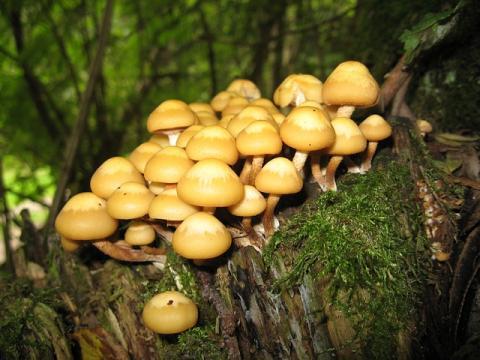
Mushrooms are a common part of many diets around the world. Some are safe for eating, while others can kill us. However, even the mushrooms that don’t harm humans have a potential to kill human cells: that is, human cancer cells. Research shows that the cute fungal foodstuff we call mushrooms have potent chemicals in them that are highly lethal to cancer cells.
Penny Bun vs. Colon Cancer
Known in the common tongue as Penny Bun, this mushroom’s secret agent name against cancer is Boletus edulis. Researchers studied the effect of taking the chemicals found in Penny Bun and giving them to two human colon cancer cell lines, LS180 and HT-29. To the delight of the scientists, the chemicals extracted from Penny Bun caused the DNA of the colon cancer cells to break apart. The mushroom chemicals turned on genes that tell the cancer cell to self-destruct, while also turning off genes that told the cancer cells to repair themselves. Previous studies showed that Penny Bun had no toxic effects on normal human colon cells, which is good news for those who love to eat Penny Bun.

Photo Source: Wikipedia
Glistening Inkcap vs. Breast Cancer
Breast cancer has a less aggressive form that responds to hormone therapy, such as Tamoxifen. But it also has an aggressive form that is resistant to hormone therapy, because this form does not have a protein called the estrogen receptor-alpha (ER). The more aggressive form, referred to as ER-negative breast cancer, requires different drugs than ER-positive breast cancer. The good news is that the mushroom called Glistening Inkcap, or Mica Inkcap, contains chemicals that kill both types of breast cancer. Known to scientists as Coprinellus micaceus, Glistening Inkcap causes breast cancer cells to quickly die. The higher the dose of mushroom chemicals given, the slower the cancer cells grow and the faster they die. These effects occurred regardless of whether the breast cancer had the ER protein. Take that, resistant cancer!

Photo Source: Wikipedia
Hen of the Wood vs. Stomach Cancer

Photo Source: Flickr
References
Lemieszek et al. “Boletus edulis ribonucleic acid - a potent apoptosis inducer in human colon adenocarcinoma cells.” Food Funct. 2016 Jul 13;7(7):3163-75.
Gu Y.H. and Leonard J. “In vitro effects on proliferation, apoptosis and colony inhibition in ER-dependent and ER-independent human breast cancer cells by selected mushroom species.” Oncol Rep. 2006 Feb;15(2):417-23.
Cui et al. “Grifola frondosa Glycoprotein GFG-3a Arrests S phase, Alters Proteome, and Induces Apoptosis in Human Gastric Cancer Cells.” Nutr Cancer. 2016 Feb-Mar;68(2):267-79.
